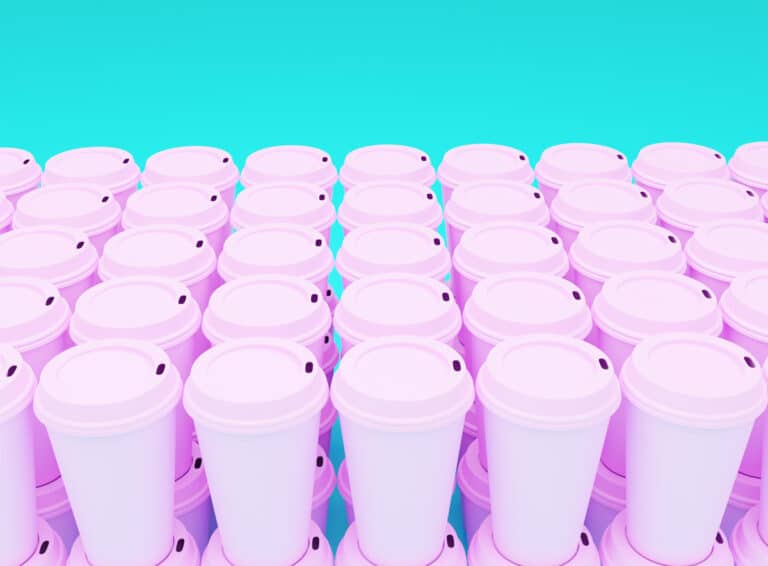Penis sizes are shrinking, along with humanity’s ability to reproduce. Here’s why

Tinky Winky, Dipsy, Laa-laa, oh… okay Pollution is very real—yes, with a capital P for emphasis—so when are we going to stop singing about it, and actually start doing something about it? Because penis havers, and this concerns men in power too, your size is at stake. And penis enjoyers, you’re in for trouble too! Full transparency here, whatever your penis size—you’re perfect, we’re an all inclusive bunch over here—moving on from that, let’s get to exactly why pollutants are shrinking pricks.
Scientist and renowned environmental and reproductive epidemiologist Doctor Shanna Swan has released a new book titled Count Down that tells us of what, she writes, will be an “existential crisis”: genitals are becoming malformed because of pollution. Fertility rates are plummeting as a phthalates, which is a chemical used when manufacturing plastics, impacts our hormone producing endocrine system, and now, a growing number of babies are being born with tiny peepees, lower sperm counts and erectile dysfunction.
Doctor Swan’s book examines “how our modern world is threatening sperm counts, altering male and female reproductive development, and imperilling the future of the human race.” In 2017, she co-authored a study that found sperm counts had rapidly decreased within western societies, by 53 per cent in fact. That’s more than half of the population, if 53 per cent doesn’t sound large enough!
The culprit to these drastic changes? Chemicals. Swan writes in her book that “Chemicals in our environment and unhealthy lifestyle practices in our modern world are disrupting our hormonal balance, causing various degrees of reproductive havoc,” continuing that “In some parts of the world, the average twenty something woman today is less fertile than her grandmother was at 35.” Swan also adds that a man may only have half the sperm count of his grandfather.
“The current state of reproductive affairs can’t continue much longer without threatening human survival,” she writes. “Of five possible criteria for what makes a species endangered, only one needs to be met: the current state of affairs for humans meets at least three.” Swan also believes that the rapidly decreasing fertility rate means that most men will be unable to produce viable sperm by as early as 2045.
That’s obviously the worst case scenario, and before you brush it off as ‘just the worst case scenario’, can you repeat after me: That is a possible scenario, unless we curveball it. I will get into how exactly we can do that later.
Another large enormous gigantic problem is that sex itself is becoming less enjoyable (not due to the fact that penises are smaller) but because we just aren’t as horny as humans used to be. I knew I was born in the wrong century, but pushing that aside, women’s sexual satisfaction as well as their desire is decreasing at a similar rate to penis size. Researchers in China found that women with higher levels of bisphenol A, commonly known as BPA (and you know you’ve previously read those letters on some packaging and ignored it), in their blood were more likely to have sexual issues such as lower libido.
Swan’s research states that a baby’s exposure to phthalates, found in plastics and toys and BPA products, especially at the end of the first trimester in the womb, leads to a shortened anogenital distance (AGD). She told The Intercept that “Nobody is going to like that term, so you could use taint or gooch instead.” Basically, whatever term you use, the section of our body that she is referring to is the distance between the anus and the beginning of the genitals. Scientists have long recognised the importance of this patch of body for a long time too.
Swan continued to tell The Intercept that “I have a paper from 1912 that looks at AGD and showed that they were nearly 100 per cent longer in males than in females. Our work has shown that chemicals, including the diethylhexyl phthalate, shorten the AGD in males.”
So, how do we avoid this astronomical problem? If you haven’t grasped just how huge this is, think along the lines of no sex equals no babies equals no humans equals… a possible future of factory-made humans, possibly… Just tossing that out there for fun times. But anyway, astronomical is the correct word to use. According to Swan’s research, BPA, phthalates as we said before, parabens and atrazine are the main culprits behind the issue. Chemicals like these are literally everywhere. Have a look around the room you’re in right now, see? They are commonly found in plastics, herbicides, toothpaste, beauty products, ATM receipts, fabrics—you name it, they’re in there.
It may be hard to necessarily avoid them completely too, which is precisely how to halt this pressing problem. However, transparent labelling from companies should be enforced. Swan suggests that using less of these plastic products and eating more organic produce in our everyday lives will prevent the impending doomsday, and so will eating home-cooked meals, even if we’re all excited to hit restaurants up again when lockdowns lift. This in turn, will curb the immense destruction of our planet, which the majority of us successfully pretend is not happening—maybe the threat to your shlong size will entice your positive actions a little more. Toss the plastic, and mind the bollocks, the fate of humanity relies on them. I wish I was joking.




